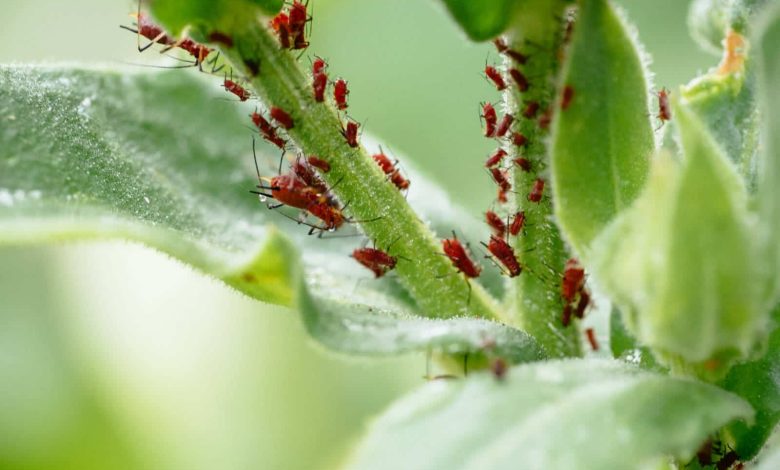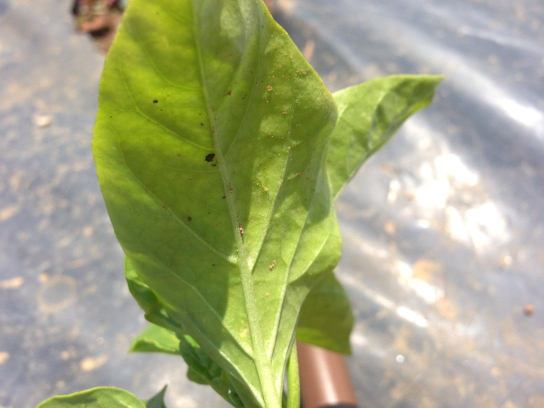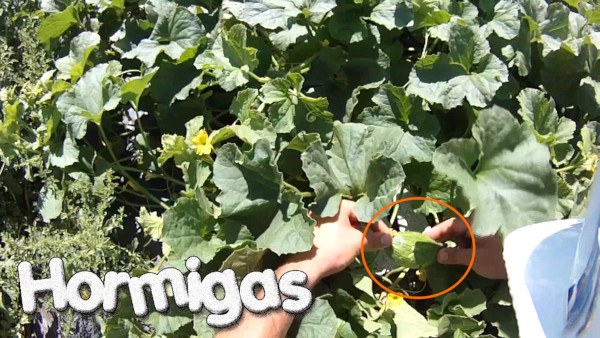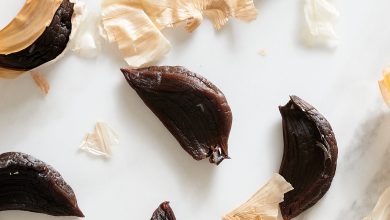Tips to Eliminate Pests in the Garden: Aphids, Ants and more

Very good to all Agrohuerers! In this article I am going to try to tell you a little about my experience fighting the pests and diseases that affected my orchard during this past year and how to prevent the mistakes made this coming year.

Tips for Pests in the Garden
As you know, in this same blog you can find a section dedicated exclusively to pests and diseases where my colleagues have published articles to identify the most common pests and weeds, combat them and prevent them in an ecological way, with natural enemies or by cultivating other species that prevent their appearance.
In this aspect I am not telling you anything new, only how I have applied their advice myself, many times the practice is completely different from the theory, things do not turn out as expected a priori or they do not have the appropriate means to defend themselves correctly and it is It is necessary to improvise or try new things.
I also hope that you tell me how you prevent your pests, each master has his booklet and I’m sure you have a lot of tricks to combat these undesirables in a practical and economical way.
To begin with, I would like to tell you that despite having harvested my first harvests, I still consider myself a very novice gardener. My main advice on this basis is to be very careful and carefully examine your plants, waiting to find symptoms of these pests and diseases in order to be able to catch them on time. Prevention is better than cure, especially in organic farming.
Pests in organic gardens
An organic garden is much more delicate to deal with than a conventional one. A conventional gardener can have simple, cheap and effective products to eliminate their pests quickly. But organic gardeners like challenges and we have to play with many variables to try to save our crops…
In this aspect, the architecture of the crop is very important, cultivating aromatic plants at the entrance and exit of the terrace or other plants such as honeysuckle and the famous nettles prevent the appearance of these pests from the beginning. The irrigation of the garden is also very important, it is necessary to control the flow so that there is no excess humidity that favors the appearance of fungi, some species do not like localized irrigation very well (such as cherry tomatoes) and it is necessary to plant them a little more separated from the irrigation lines to prevent their roots from rotting, etc.
Ecological methods to combat pests
Despite managing these two initial variables, it is very easy for pests and diseases to continue to appear in the garden, my first pests appeared a few weeks after planting the seedlings, the truth is that I was excited that they appeared so I could teach you how to combat them ecologically without the need for phytosanitary products.
The first thing I noticed were small aphids on the tomato plants, they were easily recognizable to the naked eye even though they were green, so without thinking about it I went to a drugstore to buy potash, it’s not very cheap, around €10 for a 1kg pot, but it usually last for many uses (for example I only spent about 15 grams in total).

How to get rid of aphids
My recipe to eliminate aphids, rudimentary but effective, I leave it here:
Dilute 10 grams of potada soap in a liter of water (if you add something else, nothing happens), shake until foam is formed, apply to the crop with a diffuser on the green parts or where you have observed aphids.
It is that simple and it is really very effective, in a matter of two weeks there was no longer an aphid on the tomatoes and I prevented the pest from jumping to other species.
I recommend that you take a look at this video to see how easy it is to make potash soap and its results:
How to get rid of ants in the garden
For the lucky ants, having an orchard in the countryside is almost certainly associated with having this type of neighbors, they can appear anywhere and are usually very voracious… My main advice is not to go to the orchard in flip-flops when you have this problem (they can tearing your feet to pieces, literally) and that you try to control the size and number of the ant hills before your first vegetables grow, they will surely attack them without forgiveness, greatly limiting their growth and the final product will have less value as it is full of bites.

To combat them ecologically I used coffee grounds, in theory the ants cannot stand their smell and that is why creating a fence with coffee grounds around the orchard prevents the ants from entering the interior… Sadly this measure did not work for me, so I leave you the alternatives that I will use this year to finish off my archenemies, you can try the grounds and tell me how it goes for you, my ants are resistant African ants or something like that…
Remedies in the anthills
I will spray soapy water and vinegar water with a diffuser, this will slow down their movement and drive them away from the garden.
Remedies in the paths of ants
- White rice, so they will have food available and they will not need to go looking for more, they also say that the rice in the anthill usually ferments forming a fungus that kills the ants without contaminating the soil, it will have to be seen…
- Salt: A path of salt on their routes will prevent them from passing through there.
- Suckers from tomato plants: In theory, ants cannot stand the smell of suckers from tomato plants (they are the twigs that come out of the armpits and it is highly recommended to prune them to control their growth), it is a way to take advantage of what is planted in the orchard to control them, although as I have already told you about the aromas it is something relative…
ant traps
To be cynical, you can set traps by putting some honey on jar lids, the honey will attract the ants and they will stick to it. You can also use water with sugar, Vaseline or resins.
Remedies for ants in crops
You can spray the areas affected by the attack of ants with infusions of garlic, lavender or simply water with lemon, in theory they can’t stand their smell and they won’t attack again…
With all these tips you can prevent the attack on your garden without harming the ants too much since you will mainly repel their intentions, now if all of the above fails (which may be), I offer you other less orthodox tricks:
Other remedies for ants
Alcohol: Spray the anthills or paths with the alcohol available in your homes and set it on fire with a lighter, ants will never pass through the burned areas again.
Diatomaceous earth: It is a natural insecticide that is not harmful to people or domestic animals, it is recommended to sprinkle it on anthills and paths with a mask (the particles can harm your lungs) and it is ineffective if it is wet (so it is not very effective in exteriors). This type of fossilized diatom soil scratches the ants’ exoskeletons causing their bodies to dry out.
Little more, I recommend that you watch the video that I have left before so that you understand how problematic an ant infestation can become if it is not caught in time.
I hope you tell me your tips and tricks to kill pests to improve our control library together.
All the best!

![Photo of Kiwi Care: [Soil, Humidity, Pruning and Problems]](https://www.complete-gardening.com/wp-content/uploads/2022/08/kiwi-care-soil-humidity-pruning-and-problems-390x220.jpg)

![Photo of Sansevieria: [Planting, Irrigation, Care, Transplantation and More]](https://www.complete-gardening.com/wp-content/uploads/2022/08/sansevieria-planting-irrigation-care-transplantation-and-more-390x220.jpg)
![Photo of The Cultivation and Planting of Soybeans: [Complete Step-by-Step Guide]](https://www.complete-gardening.com/wp-content/uploads/2022/08/the-cultivation-and-planting-of-soybeans-complete-step-by-step-guide-390x220.jpg)